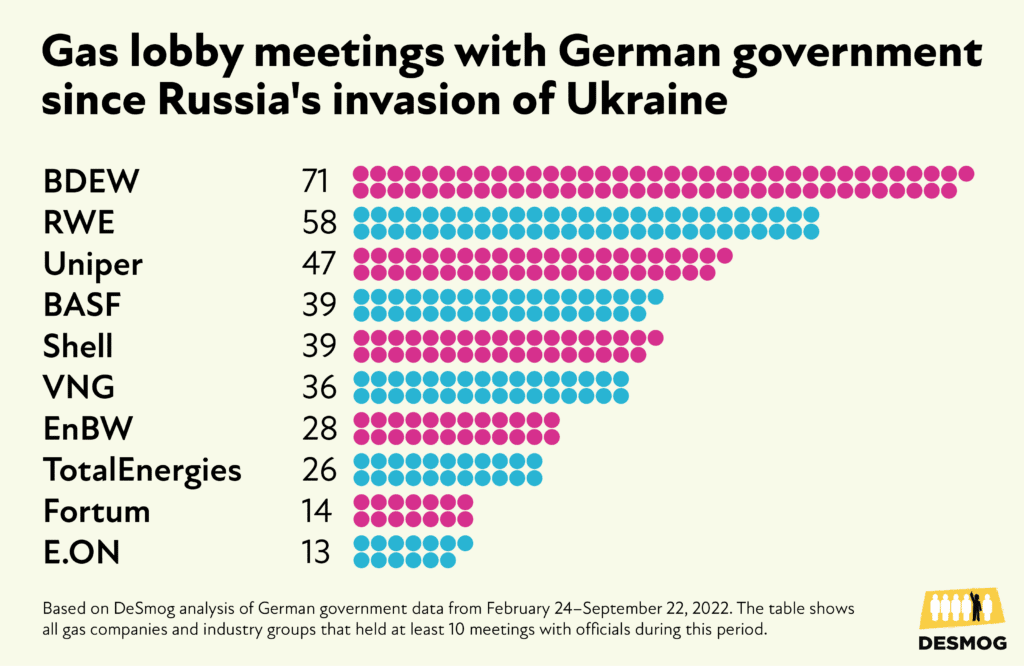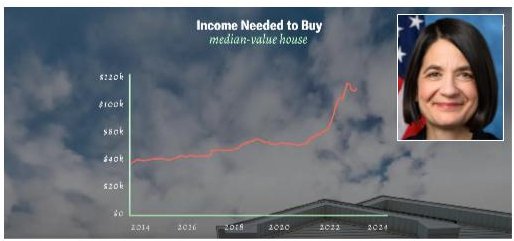EU's Energy Strategy: Addressing The Phaseout Of Russian Gas From The Spot Market

Table of Contents
Diversification of Gas Supply Sources
The EU's strategy hinges on significantly diversifying its gas supply sources to reduce dependence on a single supplier. This involves both increasing imports from alternative sources and boosting domestic production.
Increased LNG Imports
The EU is aggressively pursuing increased Liquefied Natural Gas (LNG) imports from diverse global suppliers. This diversification strategy aims to mitigate the risk associated with relying heavily on a single gas source. Several key initiatives are underway:
- New LNG terminal construction projects: Numerous projects across Europe are expanding LNG import capacity, allowing for greater flexibility in sourcing gas. Countries are investing in new infrastructure to receive and process LNG shipments.
- Pipeline interconnections with neighboring countries: Strengthening existing pipeline connections and building new ones improves the ability to transport gas efficiently across borders, enabling access to diverse supply routes.
- Negotiations with LNG exporters: The EU is actively engaging in negotiations with major LNG exporters, such as the US, Qatar, and Norway, to secure long-term supply contracts and ensure price stability. These deals are crucial to securing a reliable and affordable supply of LNG.
This strategic focus on LNG imports, alongside the development of the necessary LNG infrastructure, is a cornerstone of the EU's plan for gas diversification and energy security.
Boosting Domestic Gas Production
Simultaneously, the EU is exploring ways to increase domestic natural gas production. This involves incentivizing exploration and production in member states with significant reserves. Key elements of this strategy include:
- Incentives for domestic gas exploration and production: Member states are implementing fiscal incentives and streamlined regulatory processes to encourage investment in domestic gas exploration and production. This includes tax breaks and subsidies to encourage private investment.
- Regulatory reforms to streamline permitting processes: Reducing bureaucratic hurdles and simplifying permitting procedures for gas exploration and production projects is essential to accelerate domestic supply.
- Assessment of environmental impact: Striking a balance between energy security needs and environmental concerns is crucial. Thorough environmental impact assessments are being conducted to ensure responsible and sustainable domestic gas production.
Alongside conventional natural gas, the EU is also actively investing in renewable natural gas (RNG), produced from biomass or other sustainable sources. RNG offers a pathway towards a cleaner and more sustainable domestic gas supply.
Acceleration of Renewable Energy Sources
A fundamental aspect of the EU's energy independence strategy is a rapid expansion of renewable energy sources. This transition away from fossil fuels is critical for long-term energy security and environmental sustainability.
Investment in Renewables
The EU's commitment to renewable energy is evident in the significant investments being channeled into solar, wind, and geothermal energy projects. The EU Green Deal, a flagship initiative, underlines this commitment:
- EU Green Deal initiatives: The Green Deal encompasses a wide range of policies and financial mechanisms designed to accelerate the transition to a climate-neutral economy, significantly reducing reliance on fossil fuels.
- Renewable energy targets for member states: Member states have committed to ambitious renewable energy targets, setting clear goals for the share of renewable energy in their overall energy mix.
- Funding mechanisms for renewable energy projects: The EU provides substantial financial support through various funds and programs dedicated to renewable energy projects, including grants, loans, and tax incentives.
These initiatives are accelerating the deployment of renewable energy across the EU, leading to a more diverse and sustainable energy landscape.
Smart Grid Technologies and Energy Efficiency
Improving energy efficiency and deploying smart grid technologies are vital for reducing reliance on gas and ensuring grid stability as renewable energy sources become more prevalent. This includes:
- Smart meter rollout: Smart meters provide real-time energy consumption data, allowing for better demand-side management and increased efficiency.
- Energy efficiency upgrades in buildings: Retrofitting existing buildings and implementing energy-efficient building codes are crucial for reducing energy consumption in the building sector.
- Development of smart grid infrastructure: Smart grids enhance grid stability and facilitate the integration of intermittent renewable energy sources like solar and wind power. This includes developing advanced energy storage solutions.
Investing in these areas will contribute significantly to reducing overall energy demand and decreasing reliance on fossil fuels, including spot market gas.
Strengthening Energy Market Regulations and Cooperation
Reforming the EU's energy market and strengthening cooperation between member states are crucial for achieving a secure and resilient energy system.
EU Energy Market Design
Reforms are underway to enhance the transparency, competitiveness, and resilience of the EU's energy market:
- Reforms to gas market regulations: Regulations are being reviewed and updated to ensure fair competition, prevent market manipulation, and promote transparency in gas trading.
- Measures to prevent market manipulation: Strengthening regulatory oversight and implementing measures to prevent market manipulation are crucial to ensure fair prices and secure supply.
- Strengthening cross-border energy cooperation: Improved cooperation between member states enhances grid interconnections, facilitating the efficient flow of energy across borders and ensuring greater resilience.
These reforms aim to create a more robust and efficient energy market, capable of withstanding external shocks.
Strategic Energy Storage
Given the intermittent nature of renewable energy sources, energy storage is crucial for ensuring grid stability, particularly in the context of the volatile spot market:
- Battery storage solutions: Battery storage systems are becoming increasingly cost-effective and play a significant role in smoothing out fluctuations in renewable energy generation.
- Hydrogen storage: Hydrogen storage offers a promising solution for large-scale energy storage, allowing for the storage of renewable energy for later use.
- Pumped hydro storage: Pumped hydro storage, while requiring specific geographical conditions, remains a viable option for large-scale energy storage.
Investing in diverse energy storage solutions is crucial for managing the intermittency of renewable energy and maintaining grid stability, contributing significantly to managing the volatility of the spot market.
Conclusion
The EU's energy strategy is undergoing a significant transformation in response to the urgent need to phase out Russian gas from the spot market and achieve EU energy independence. Diversifying supply sources, accelerating the transition to renewable energy, and implementing smart energy solutions are critical components of this strategy. While challenges remain, the EU's commitment to these multifaceted approaches offers a pathway towards a more secure, sustainable, and resilient energy future. The successful implementation of this strategy will not only enhance the EU’s energy security but also pave the way for a more sustainable and environmentally responsible energy system. To stay updated on the latest developments in the EU's efforts to achieve energy independence, continue to follow news and reports on the EU's energy strategy and the phaseout of Russian gas from the spot market.

Featured Posts
-
 Ella Travolta Kci Johna Travolte Prerasla U Pravu Ljepoticu
Apr 24, 2025
Ella Travolta Kci Johna Travolte Prerasla U Pravu Ljepoticu
Apr 24, 2025 -
 Landlord Price Gouging In The Wake Of La Fires Reality Tv Stars Claims
Apr 24, 2025
Landlord Price Gouging In The Wake Of La Fires Reality Tv Stars Claims
Apr 24, 2025 -
 The Bold And The Beautiful April 9 Recap Steffy Blames Bill Finn Rushes To The Icu
Apr 24, 2025
The Bold And The Beautiful April 9 Recap Steffy Blames Bill Finn Rushes To The Icu
Apr 24, 2025 -
 Why Middle Managers Are Essential For Company Success
Apr 24, 2025
Why Middle Managers Are Essential For Company Success
Apr 24, 2025 -
 John Travolta Speaks Out After Private Photo Leaks Online
Apr 24, 2025
John Travolta Speaks Out After Private Photo Leaks Online
Apr 24, 2025
